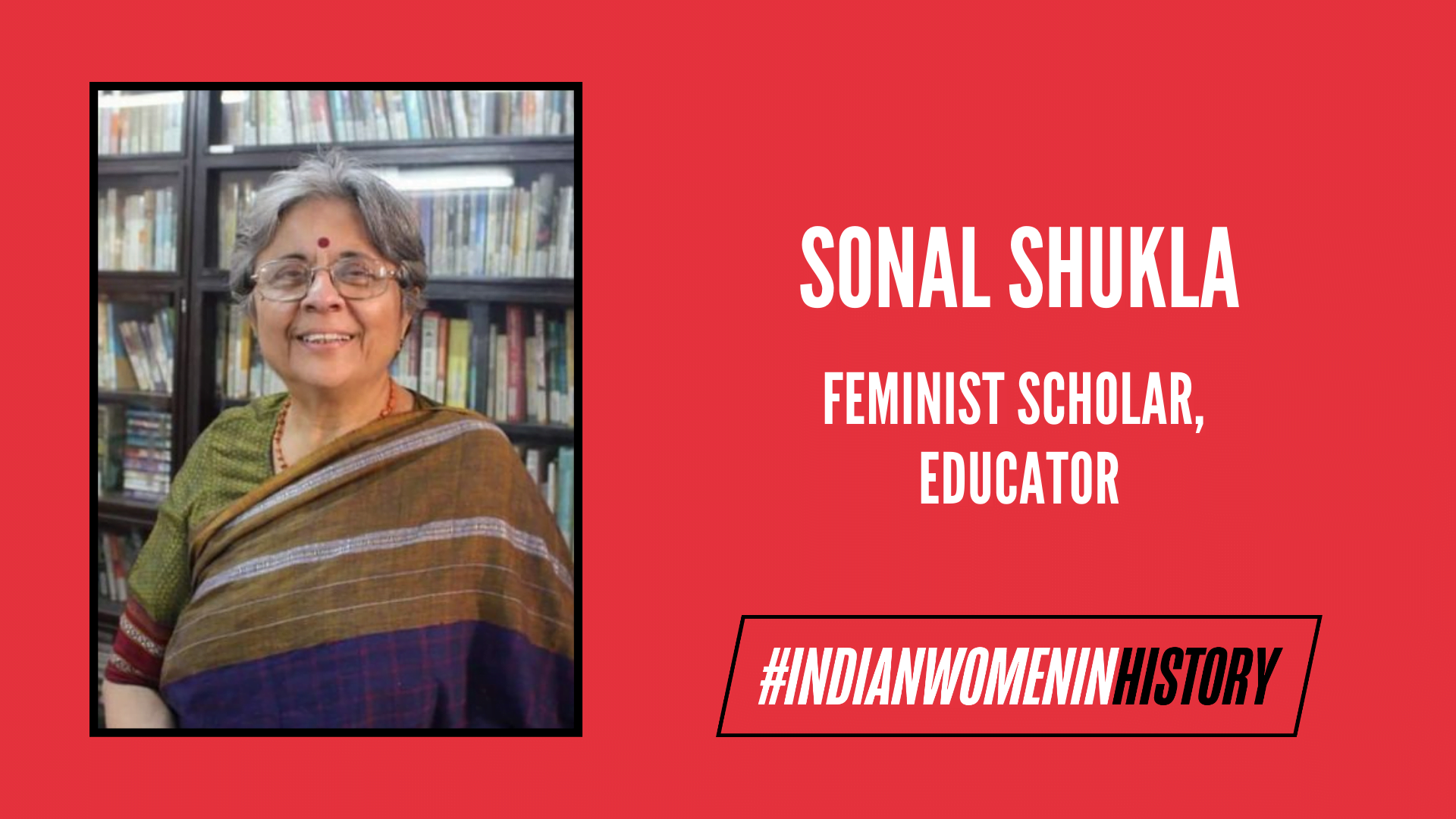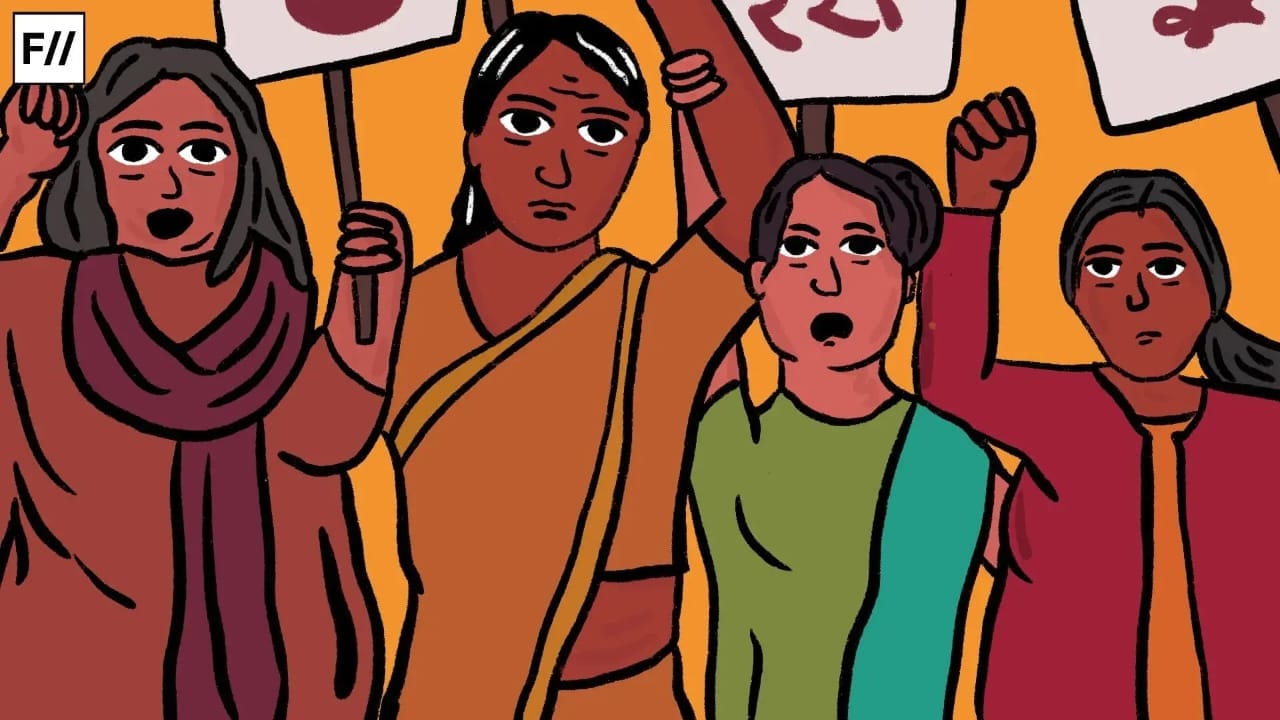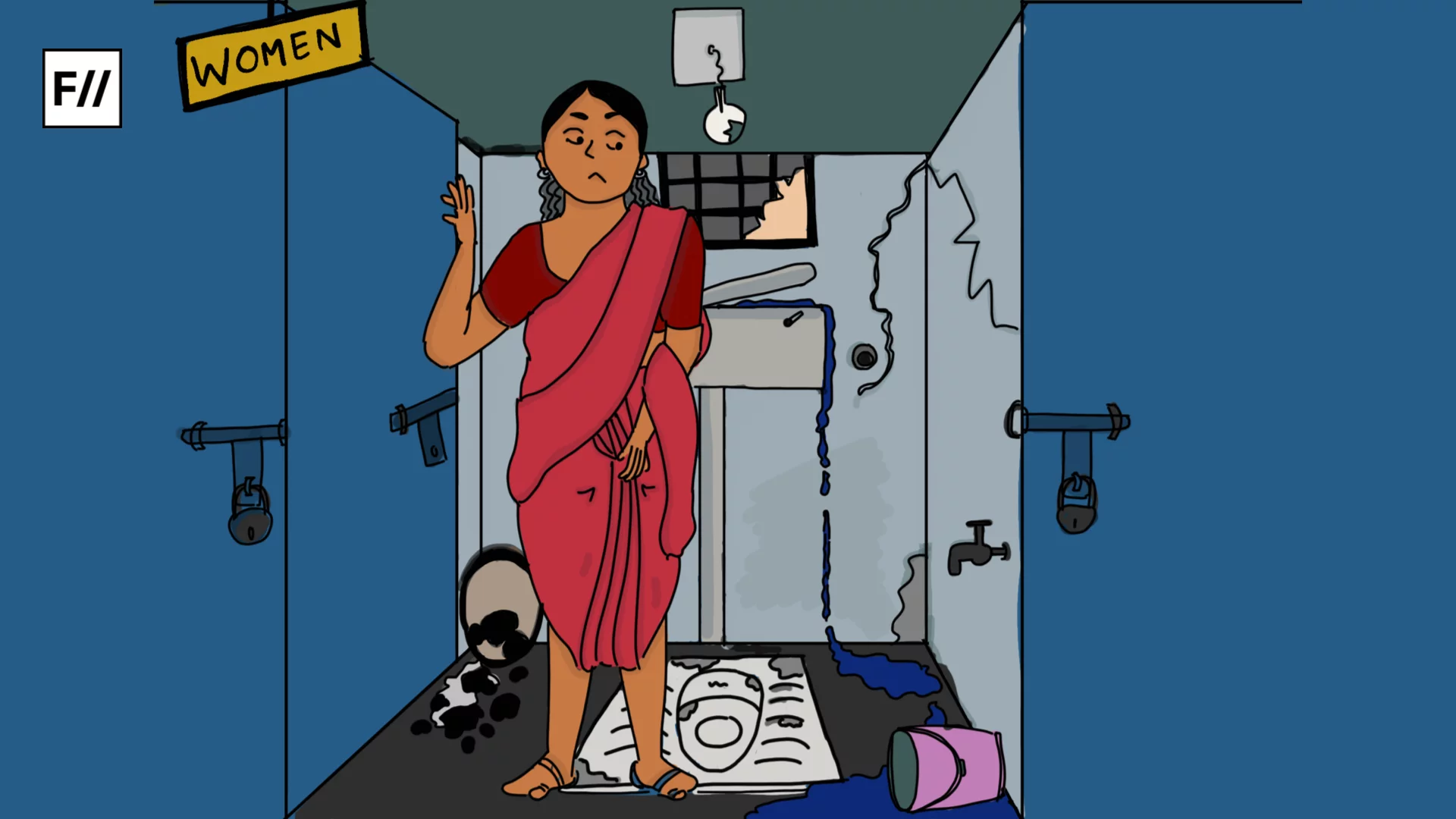Sonal Shukla, popularly known as Sonalben was a feminist, activist, and writer. She was the founder and managing trustee of the Vacha Charitable Trust and the co-founder of the Forum Against Oppression of Women. A fierce advocate of women’s rights, she was also known for her humour, wit, warmth and humility.
Sonal Shukla was born in Varanasi in 1941, into a family of artists. She was greatly influenced by the works of Bengali poet and thinker Rabindranath Tagore. She completed school education in her mother tongue and later, instead of writing columns in the English language, she decided to write them in her mother tongue -Gujarati. The main motive behind this decision was to be able to reach out to a larger and necessary audience which were women.
She has an educational background in Gandhian education, literature and aesthetics. During her school education, she was introduced to Mahatma Gandhi’s basic education methodology and also topics such as social sciences. She first worked as a teacher and later, a lecturer. She also worked on projects relating to sanitation workers, fisherfolk and indigenous habitants of Mumbai. In 2021, she was recognised as Feminist Icon in India by Friedrich Ebert Stiftung, for their Gender Justice hub in Asia. She has also received a Mahatma Award for her work in gender equality from the Aditya Birla Group.
She promoted intersectional feminist perspectives through her writings. She was a columnist in two Gujarati newspapers. One of her columns focused on the analysis of contemporary events and issues through a gender lens. The other column was anchored on her reflection of poems, stories, films and crafts. Her comments would often be faced with sharp reactions but they were relevant and brought a change in feminist thought.
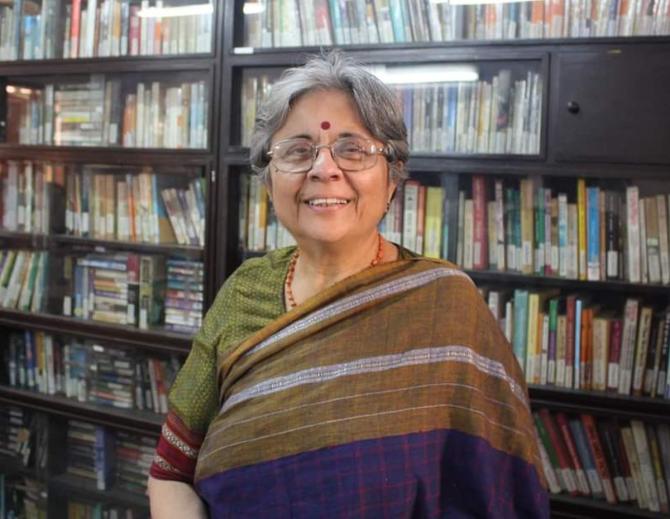
Her Journey: A life of iconic feminist interventions
Sonal Shukla worked with the marginalised and oppressed. She once helped a friend of an acquaintance by letting her live in her house. The person was lawyer Gayatri Singh who was then part of the women’s movement. With Vibhuti Patel and other women, they formed the Socialist Women’s Group.
Sonal Shukla was involved with Feminist Network, which published the first feminist newsletters in English and Hindi from her home. After a few years, she offered shelter to survivors of domestic violence. In the year 1980, she was among the founders of Mumbai’s first autonomous feminist group which was known as Forum Against Rape which was later known as the Forum Against Oppression of Women (FAOW).
Sonal was mindful of her privilege, empathetic and very approachable. Her colleague Vibhuti Patel described her as a ‘feminist who was approachable and accessible to women from underprivileged backgrounds‘.
Sonal Shukla in her interview for the documentary Unlimited Girls said that “you can’t be part of a women’s movement or an NGO about women without, for instance, reading about women”. Vacha is a resource centre that founded by Sonal to document and preseve the experiences and lives of women
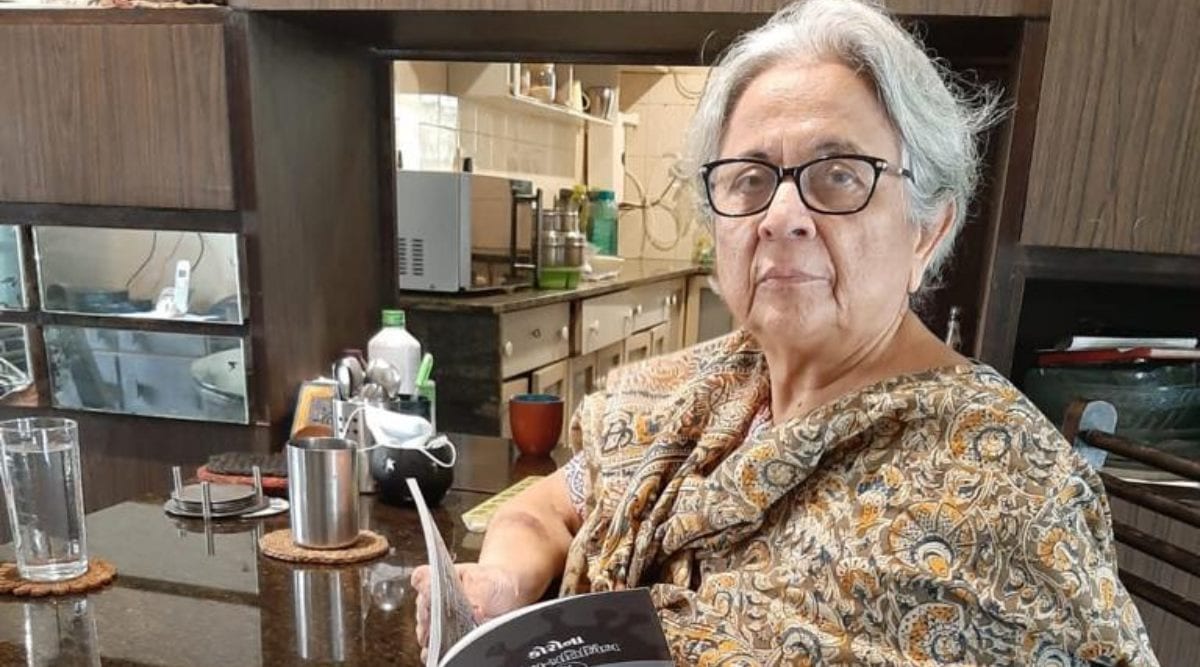
After the Mathura Rape Case Judgement in 1979, in which the Supreme Court made comments about the moral integrity of a rape survivor, an open letter was written by four senior lawyers to the Supreme Court against the judgement. This letter helped various women across the country to come together and protest against the statement.
49 women in Mumbai including Sonal Shuhla decided to take the issue forward. This is what resulted in the formation of the Forum Against Rape. The Forum campaigned for the reopening of the case and also demanded changes in rape law. Sonal Shukla was a part of various other groundbreaking women’s movements in the 80s and 90s.
These autonomous groups helped the increase in mobilisation of voices against violence on women. Sonal Shukla was part of campaigns that resulted in an amendment in our rape law where the burden of proof of innocence was shifted to the rapist in custodial rape cases. She was also part of a campaign against domestic violence and the need to establish shelters for women. FAOW was the later outcome of a campaign to ban pre-natal sex determination tests. In 1987, Sonal Shukla established a library and Women’s Resource Centre, which was registered as a trust after two years.
Also read: Artemisia Gentileschi: The Artist Whose Work Is A Love Letter To Survivors And Female Solidarity
Vacha: The Trust
Sonal Shukla in her interview for the documentary Unlimited Girls said that “you can’t be part of a women’s movement or an NGO about women without, for instance, reading about women”. Vacha is a resource centre that founded by Sonal to document and preseve the experiences and lives of women.
The trust also aims to highlight women in history, their socio-moral status and compile the contributions of the marginalised sections of women. Vacha focuses on gender based issues through various educational programmes. It aims to empower youth and increase social awareness. The objective of the centre is to facilitate research, documentation, training, publication and relevant interventions in the social development sector.
When we document the history of the feminist movement in India, Sonal Shukla’s legacy is one that cannot be forgotten, the impact of which continues to reverberate in the society even today
Vacha has been working even during the pandemic. Sonam Shukhla highlighted that due to lockdown the condition is frightening and individuals especially from oppressed castes and classes are deeply affected by job losses. Vacha conducted classes for six years old students as well as second graders while schools were shut down and online education was inaccessible to many.
Even though Sonal Shukla had retired from the active management of the Vacha Charitable Trust, she continued to be involved in various operations of the Trust. She died of a cardiac arrest in Mumbai on September 9, 2021. She was a feminist who, throughout her life took various measures to bring about aware through her writing and ground work. She opened her house to help individuals who needed refuge, and established Vacha to make feminist texts available to girls and women.
When we document the history of the feminist movement in India, Sonal Shukla’s legacy is one that cannot be forgotten, the impact of which continues to reverberate in the society even today.
Also read: A Tribute To Feminist Activist Kamla Bhasin
About the author(s)
Geeta Gunjal is a fresh graduate from Symbiosis School for Liberal Arts, Pune. She majored in International Relations. She likes to read books and binge-watch K-dramas. She is trying to learn more about Intersectional feminism
